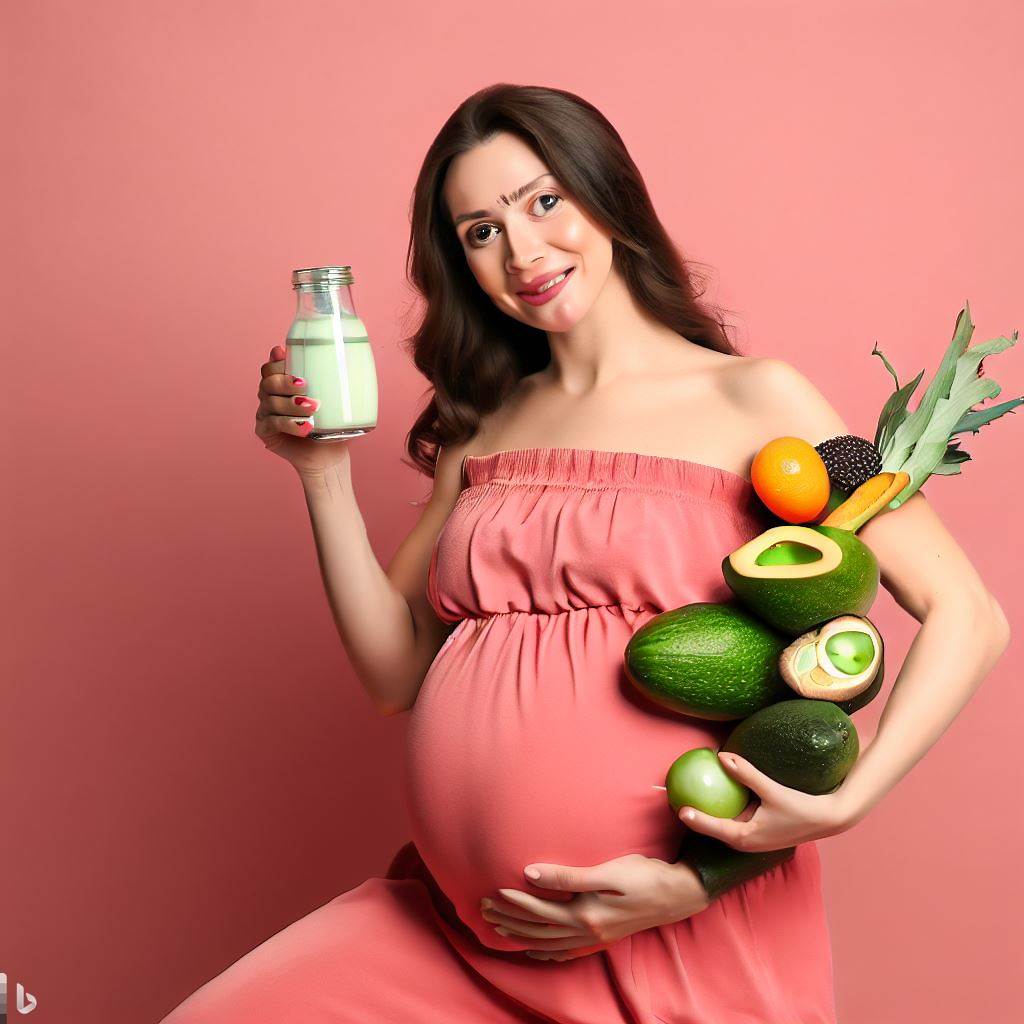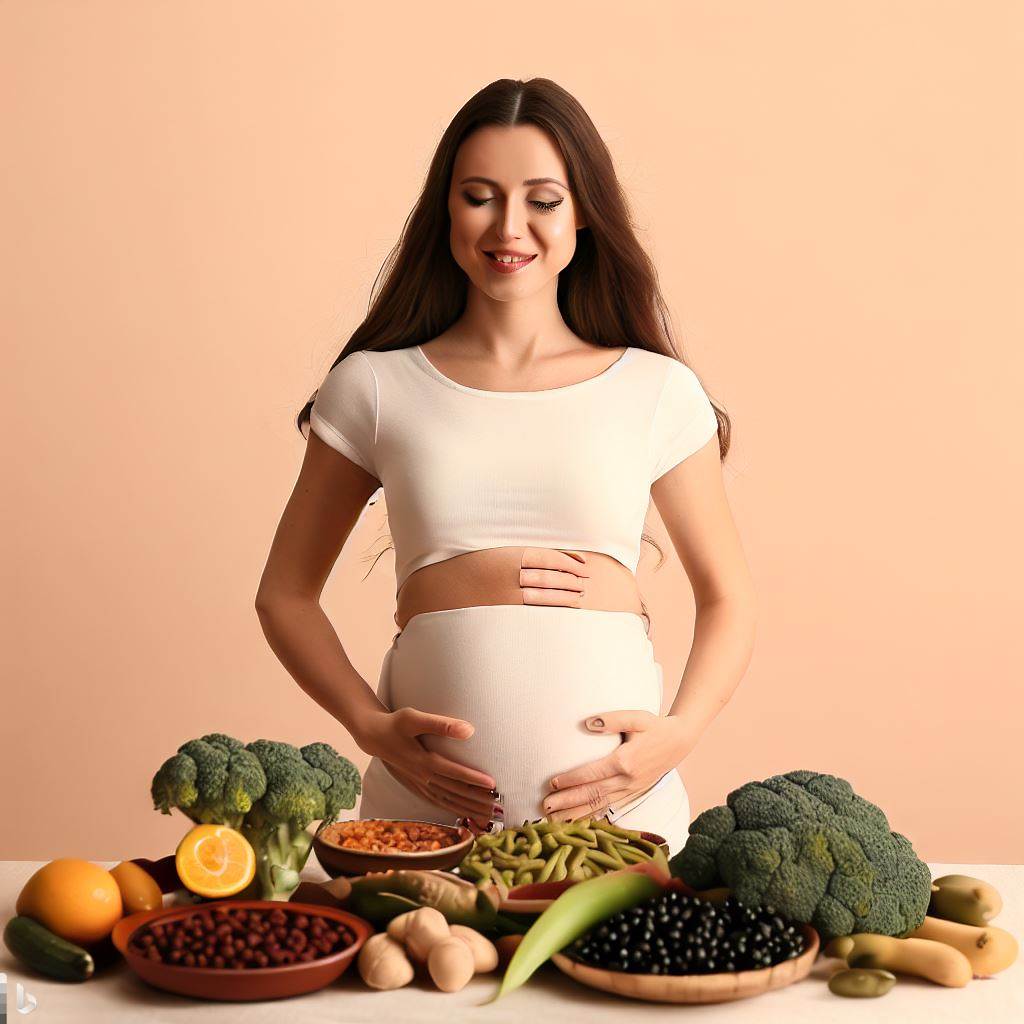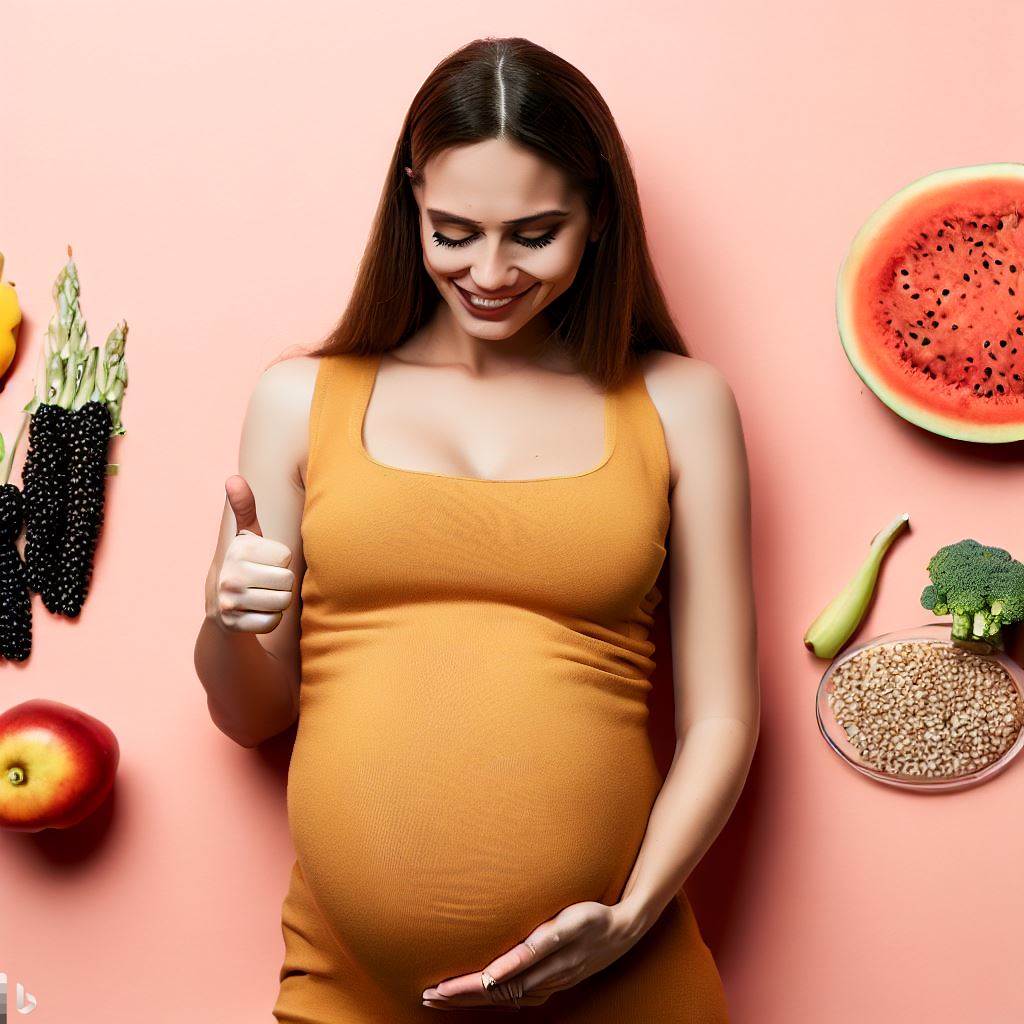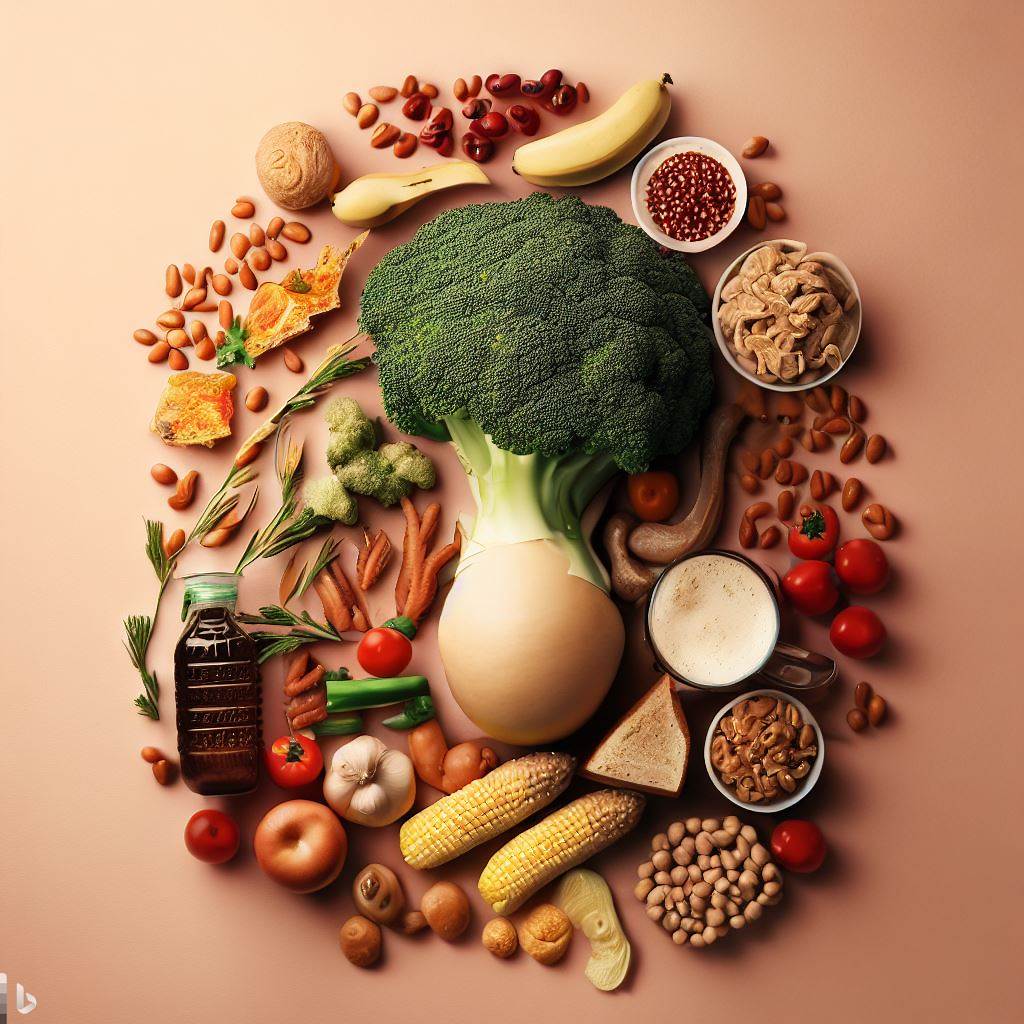1-A Guide To The Vitamins Necessary For A Healthy Pregnancy
about vitamins that should be taken during pregnancy:
A Guide to Essential Vitamins for a Healthy Pregnancy
Pregnancy is a time when the body needs extra nutrition to support the growth and development of the baby. While a healthy and balanced diet is essential, it can be difficult to obtain all the necessary vitamins and minerals from food alone. Taking prenatal vitamins can help ensure that the mother and baby receive all the essential nutrients required for a healthy pregnancy. In this article, we’ll explore some of the essential vitamins that should be taken during pregnancy.

- Folic Acid
Folic acid, also known as folate, is one of the most important vitamins for a healthy pregnancy. It is recommended that women take 400-800 micrograms of folic acid per day, starting at least one month before conception and continuing throughout the first trimester. Folic acid can help prevent birth defects of the brain and spine, such as spina bifida. It can also reduce the risk of preterm delivery and low birth weight.
Foods rich in folic acid include leafy greens, citrus fruits, beans, peas, and fortified cereals. However, it can be difficult to obtain enough folic acid from food alone, which is why prenatal vitamins often contain higher doses of this important nutrient.
- Iron
Iron is essential for the production of hemoglobin, the protein in red blood cells that carries oxygen to the body’s tissues. During pregnancy, the body needs extra iron to support the growth and development of the baby. It is recommended that pregnant women consume 27 milligrams of iron per day.
Iron can be found in a variety of foods, including lean red meat, poultry, fish, beans, and fortified cereals. However, some women may require additional iron supplements, especially if they are anemic or have a history of iron deficiency.
- Calcium
Calcium is essential for the development of the baby’s bones and teeth. It is also important for the proper functioning of the mother’s muscles and nerves. Pregnant women should aim to consume 1000-1300 milligrams of calcium per day.
Calcium-rich foods include dairy products such as milk, cheese, and yogurt, as well as leafy greens and fortified foods such as tofu and orange juice. However, some women may require additional calcium supplements, especially if they are not consuming enough calcium through their diet.
- Vitamin D
Vitamin D is essential for the absorption of calcium and the development of the baby’s bones and teeth. It also plays a role in the mother’s immune system and may help reduce the risk of preterm delivery and gestational diabetes. Pregnant women should aim to consume 600-800 international units (IU) of vitamin D per day.
Vitamin D can be found in fatty fish such as salmon, as well as fortified foods such as milk, orange juice, and cereal. However, it can be difficult to obtain enough vitamin D from food alone, especially for women who have limited sun exposure. Some women may require additional vitamin D supplements.
- Vitamin C
Vitamin C is important for the immune system and the absorption of iron. Pregnant women should aim to consume 85 milligrams of vitamin C per day.
Vitamin C can be found in a variety of fruits and vegetables, including citrus fruits, strawberries, kiwi, and broccoli. Most prenatal vitamins also contain vitamin C.
- Vitamin B6
Vitamin B6 is important for the development of the baby’s brain and nervous system. It also plays a role in the mother’s metabolism and immune system. Pregnant women should aim to consume 1.9 milligrams of vitamin B6 per day.
Vitamin B6 can be found in

about folic acid, iron, calcium, vitamin D, vitamin C, vitamin B6, and vitamin B12, which are found in foods:
Essential Vitamins Found in Food
Vitamins are organic compounds that are essential for the proper functioning of the body. They play a vital role in maintaining good health and preventing various diseases. While vitamin supplements are available, it is recommended to obtain essential vitamins from food sources whenever possible. In this article, we’ll explore some of the key vitamins found in foods, including folic acid, iron, calcium, vitamin D, vitamin C, vitamin B6, and vitamin B12.
- Folic Acid
Folic acid, also known as folate, is a B vitamin that is essential for cell growth and development. It plays a crucial role in the formation of DNA and RNA, which are important for the growth and repair of cells. Folic acid is especially important for pregnant women, as it can help prevent birth defects of the brain and spine, such as spina bifida.
Foods rich in folic acid include leafy greens, such as spinach and kale, as well as beans, peas, citrus fruits, and fortified cereals. One cup of cooked spinach, for example, provides over 50% of the recommended daily intake of folic acid. Other good sources of folic acid include asparagus, broccoli, and avocado.
- Iron
Iron is an essential mineral that is important for the production of hemoglobin, the protein in red blood cells that carries oxygen throughout the body. Iron is especially important for women, as they have higher iron requirements than men due to menstrual blood loss. Iron deficiency can lead to anemia, which can cause fatigue, weakness, and shortness of breath.
Foods rich in iron include red meat, poultry, fish, beans, and fortified cereals. One cup of cooked lentils, for example, provides over 35% of the recommended daily intake of iron. Other good sources of iron include spinach, tofu, and pumpkin seeds.
- Calcium
Calcium is an essential mineral that is important for strong bones and teeth. It also plays a role in muscle and nerve function, blood clotting, and hormone secretion. Calcium deficiency can lead to osteoporosis, a condition in which bones become weak and brittle.
Foods rich in calcium include dairy products such as milk, cheese, and yogurt, as well as leafy greens like kale and collard greens. One cup of low-fat milk, for example, provides over 30% of the recommended daily intake of calcium. Other good sources of calcium include tofu, sardines, and almonds.
- Vitamin D
Vitamin D is a fat-soluble vitamin that is important for the absorption of calcium and phosphorus, which are essential for strong bones and teeth. Vitamin D also plays a role in immune function and cell growth. Vitamin D deficiency can lead to rickets, a condition in which bones become weak and brittle.
Foods rich in vitamin D include fatty fish such as salmon and tuna, as well as fortified foods like milk and cereal. One 3-ounce serving of cooked salmon, for example, provides over 100% of the recommended daily intake of vitamin D. Other good sources of vitamin D include mushrooms and egg yolks.
- Vitamin C
Vitamin C is a water-soluble vitamin that is important for the immune system, wound healing, and the absorption of iron. Vitamin C is also an antioxidant, which means it helps protect cells from damage caused by free radicals.
Foods rich in vitamin C include citrus fruits like oranges and grapefruits, as well as kiwi, strawberries, and bell peppers.

about which foods contain vitamin B6 and B12:
Vitamin B6 and B12 are essential vitamins that play a crucial role in the proper functioning of the body. Vitamin B6, also known as pyridoxine, is important for the metabolism of proteins, carbohydrates, and fats. It also plays a role in the production of neurotransmitters, which are important for brain function. Vitamin B12, also known as cobalamin, is important for the production of red blood cells and the proper functioning of the nervous system. In this article, we’ll explore some of the key foods that contain vitamin B6 and B12.
Foods High in Vitamin B6
- Chickpeas
Chickpeas, also known as garbanzo beans, are a good source of vitamin B6. One cup of cooked chickpeas provides about 30% of the recommended daily intake of vitamin B6. Chickpeas are also a good source of protein, fiber, and other essential nutrients.
- Tuna
Tuna is a good source of vitamin B6, with one 3-ounce serving providing about 25% of the recommended daily intake. Tuna is also rich in omega-3 fatty acids, which are important for heart health and brain function.
- Bananas
Bananas are a good source of vitamin B6, with one medium-sized banana providing about 20% of the recommended daily intake. Bananas are also rich in fiber and potassium, which are important for digestive health and heart health, respectively.
- Potatoes
Potatoes are a good source of vitamin B6, with one medium-sized potato providing about 20% of the recommended daily intake. Potatoes are also a good source of potassium, vitamin C, and other essential nutrients.
- Sunflower Seeds
Sunflower seeds are a good source of vitamin B6, with one ounce providing about 15% of the recommended daily intake. Sunflower seeds are also rich in healthy fats, fiber, and other essential nutrients.
- Spinach
Spinach is a good source of vitamin B6, with one cup of cooked spinach providing about 10% of the recommended daily intake. Spinach is also rich in iron, calcium, and other essential nutrients.
Foods High in Vitamin B12
- Clams
Clams are the richest food source of vitamin B12, with one 3-ounce serving providing over 1000% of the recommended daily intake. Clams are also a good source of protein, iron, and other essential nutrients.
- Beef Liver
Beef liver is another rich source of vitamin B12, with one 3-ounce serving providing over 800% of the recommended daily intake. Beef liver is also a good source of protein, iron, and other essential nutrients.
- Salmon
Salmon is a good source of vitamin B12, with one 3-ounce serving providing about 80% of the recommended daily intake. Salmon is also rich in omega-3 fatty acids, which are important for heart health and brain function.
- Eggs
Eggs are a good source of vitamin B12, with one large egg providing about 10% of the recommended daily intake. Eggs are also a good source of protein and other essential nutrients.
- Milk
Milk is a good source of vitamin B12, with one cup providing about 20% of the recommended daily intake. Milk is also a good source of calcium and other essential nutrients.
- Fortified Cereals
Many breakfast cereals are fortified with vitamin B12, with one serving providing about 25-100% of the recommended daily intake. Be sure to check the

